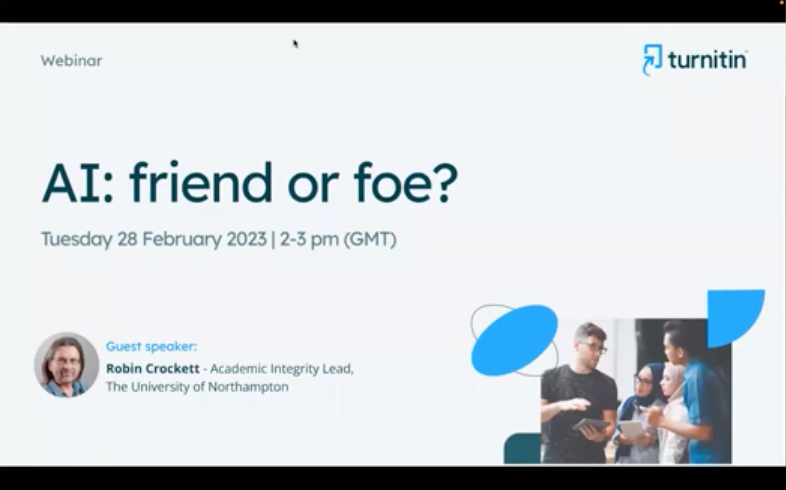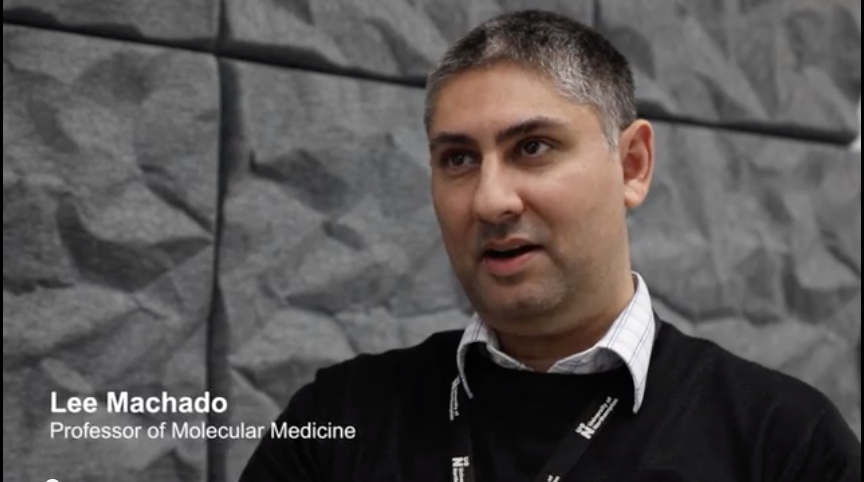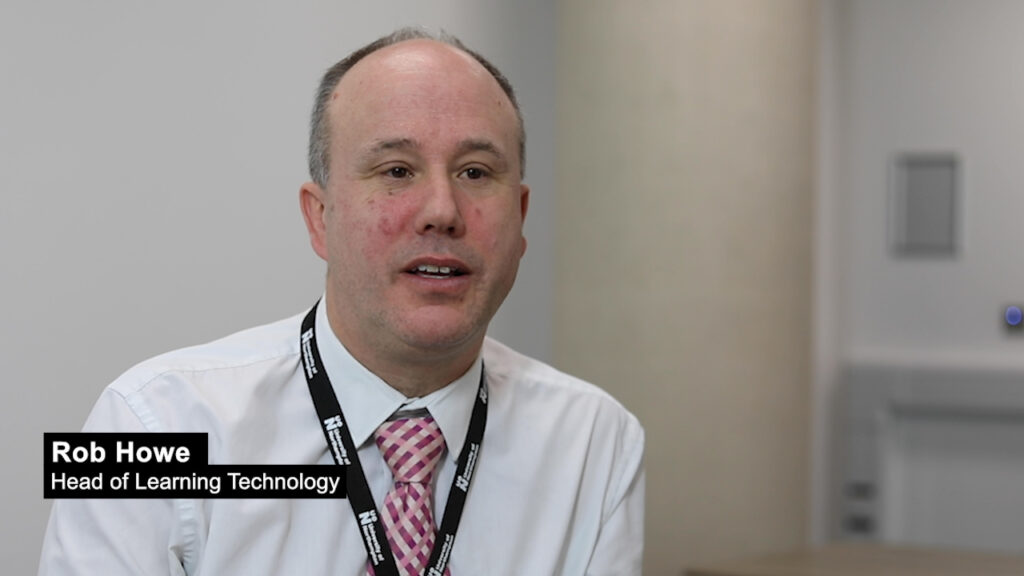Generative AI – Exploring the Potential Impact on Education and Creativity
The year 2023 is proving to be a fascinating one for generative AI tools, with ChatGPT, the latest chatbot from OpenAI, crossing the 100 million user line in January 2023, making it the fastest-growing consumer application in a short period of time (source: DemandSage). ChatGPT is a large language model that provides detailed answers to a wide range of questions. Ask it to summarise a report, structure a presentation or activities for your session and you may well be pleased with the results. ChatGPT’s ease of use, speed of response, and detailed answers have seen it quickly dominate the AI generator market and gain both widespread acclaim and criticism.
While early media attention focused on the negative, playing on sci-fi tropes and the out-of-control desires of AI tools, scientists such as Stephen Wolfram have been exploring and explaining the capabilities and intricacies of ChatGPT, expertly raising awareness of its underlying Large Language Model architecture and its limitations as a tool.
In his recent talk on the Turnitin Webinar ‘AI: friend or foe?’, Robin Crockett – Academic Integrity Lead here at UON, discussed how a better understanding of the ability of ChatGPT to create content can be used to deter cheating with AI tools. However, concerns have also been raised about students using the tool to cheat, claiming that minimal effort required to enter an essay question in ChatGPT may produce an essay that may be of an adequate standard to, at least, pass an assessment (source: The Guardian).

Link to YouTube, Turnitin Session: AI friend or foe? 28/02/23 (CC Turnitin)
The next webinar in the Turnitin series entitled ‘Combating Contract Cheating on Campus’ with expert speakers Robin Crockett, Irene Glendinning and Sandie Dann, can be found here.
One thing the media stories seem to agree upon is that generative AI tools have the potential to change the way we do things and challenge the status quo, with some traditional skill sets at risk of becoming replaced by AI, and new opportunities for those who embrace these technologies.
In terms of how AI might be utilised by academic staff, Lee Machado, Professor of Molecular Medicine, describes his use of AI tools in cancer classification and how AI tools might be used to help answer questions in his field. Lee also discusses how he feels AI tools such as ChatGPT could improve student experiences by providing personalised feedback on essays and by simplifying complex information.

In the following interview, Jane Mills, Senior Lecturer in Fashion and Textiles, discusses how the fashion industry is embracing AI, emphasising that rather than AI replacing creativity, it can be used to enhance creative work. Students Amalia Samoila and Donald Mubangizi reflect on the collaborative nature of working with AI, using examples of their current work.

In his interview, Rob Howe, Head of Learning Technology, discusses the evolution of AI technology and its impact on the academic world. He explains that AI has come a long way since the original definitions by Minsky and Turing in the 1950s and that improvements in processing speed and access to data have made it a revolution in technology. Rob describes how AI technology has already been integrated into tools and academic systems in universities and how the rise of AI technology has led to a change in the way assignments are being considered, as students may now be using AI systems to assist in their studies. Although there is discussion around institutions wishing to ban the use of AI in academic work, Rob emphasizes the importance of learning to live with such tools and using them in a way that supports educators and students. AI systems have the potential to be a valuable resource for tutors to generate learning outcomes and offer new ideas which can then be critically evaluated and modified.

Exploring AI through multiple platforms and apps is a great way for users to get started. However, it’s important to note that not all AI tools are free. While many offer free tokens or limited availability for new users, some require payment. Our team member, inspired by the use of AI-generated images by an art student at UON, tried the IOS app, Dawn AI, which offered a 3-day trial. They enjoyed generating 48 new versions of themselves and even created versions of themselves as a warrior and video game character.
However, it’s important to consider whether using AI in this way is simply a gimmick or if it has a more purposeful use. It’s easy to dismiss AI-generated images as mere novelties, but the potential applications of this technology are vast and varied. AI-generated images can be used in advertising, social media marketing, and even in the film industry. As AI continues to develop and evolve, we’re likely to see even more innovative and exciting uses for this technology. The possibilities are endless.
The full extent of how AI tools will fit into daily academic life is yet to be determined. While some believe that AI has the potential to revolutionize the way in which we teach and learn, others remain skeptical about its ethical implications and its potential to negatively impact student engagement.
One of the main concerns is whether AI tools will prove to be a positive tool to enhance creativity and support students or whether they will provide a shortcut to assessments that undermine the learning process. It is clear that there are significant implications for how educators use AI tools in the classroom.
To explore these issues and more, Rob Howe, Head of Learning Technology at the University of Northampton (supported by University staff, external colleagues and the National Centre for A.I.), will be running a series of debates and talks on campus and online. These discussions will aim to assess the potential of AI tools and examine their ethical implications. Participants will discuss the challenges and opportunities presented by AI, and debate the best ways to incorporate these tools into the classroom.
The first of these debates, titled, ‘The computers are taking over…?’, is on March 15th. The full details can be found here; https://blogs.northampton.ac.uk/learntech/2023/01/30/the-computers-are-taking-over-debate/
Link to future Webinar from the series: https://www.turnitin.com/resources/webinars/turnitin-session-series-contract-cheating-2023
Authors: Richard Byles and Kelly Lea.
Recent Posts
- Blackboard Upgrade – February 2026
- Blackboard Upgrade – January 2026
- Spotlight on Excellence: Bringing AI Conversations into Management Learning
- Blackboard Upgrade – December 2025
- Preparing for your Physiotherapy Apprenticeship Programme (PREP-PAP) by Fiona Barrett and Anna Smith
- Blackboard Upgrade – November 2025
- Fix Your Content Day 2025
- Blackboard Upgrade – October 2025
- Blackboard Upgrade – September 2025
- The potential student benefits of staying engaged with learning and teaching material
Tags
ABL Practitioner Stories Academic Skills Accessibility Active Blended Learning (ABL) ADE AI Artificial Intelligence Assessment Design Assessment Tools Blackboard Blackboard Learn Blackboard Upgrade Blended Learning Blogs CAIeRO Collaborate Collaboration Distance Learning Feedback FHES Flipped Learning iNorthampton iPad Kaltura Learner Experience MALT Mobile Newsletter NILE NILE Ultra Outside the box Panopto Presentations Quality Reflection SHED Submitting and Grading Electronically (SaGE) Turnitin Ultra Ultra Upgrade Update Updates Video Waterside XerteArchives
Site Admin

